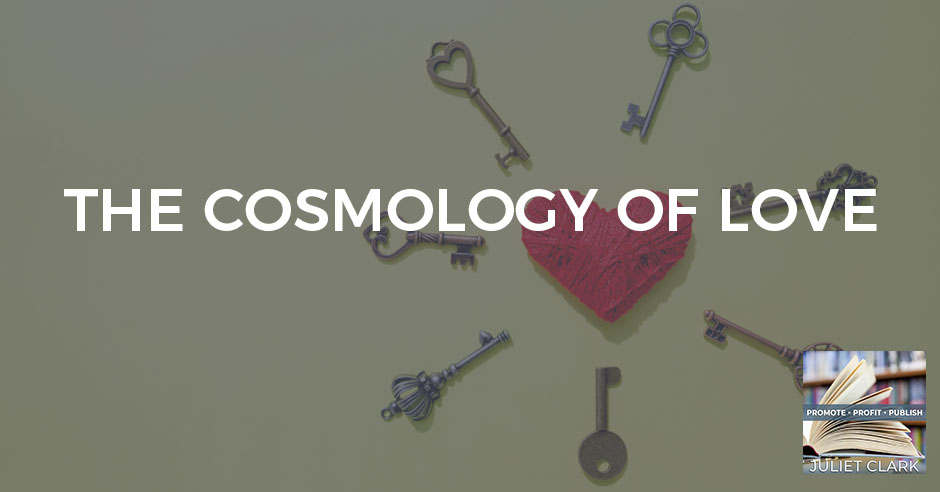
In a world full of hate, it can sometimes be difficult to find reasons to love. Yet, today’s guest believes that there is so much opportunity out there to love. We need only to learn how to focus on exhibiting and expressing that. In this episode, Juliet Clark sits down with Laura Smith Biswas, the author of The Cosmology of Love: 70+ Ways to Experience Greater Love. Here, Laura shares her insights on fostering deeper connections and expressing love—both to ourselves and others. They talk about the importance of communication and boundaries and sharing wisdom from Laura’s book, the ways of loving. Join this conversation and discover how great love can flow in your life and those you love.
—
Watch the episode here
Listen to the podcast here
The Cosmology of Love With Laura Smith Biswas
Before we get started, I want to remind you to go over to Superbrand Publishing on YouTube and subscribe to all of the videos. If you’re someone who likes to see these people in person, all the videos are over there. Pretty soon, we’re going to be over on Rumble too. If you’re more into Rumble than YouTube, then you can see them any other place. Also, don’t forget to go subscribe to Breakthrough Author Magazine.
Get yourself some tips, tricks, understand the publishing industry a little bit better. See some of the highlighted authors who have done press releases. They’ve done bestseller campaigns, published successfully and find out what their secrets are, what their books are and emulate. Start emulating. Go over to BreakthroughAuthorMagazine.com and get your free subscription.
Our guest is Laura Smith Biswas. She is the author of The Cosmology of Love: 70+ Ways to Experience Greater Love. She focuses on ways to teach tangible ways to love ourselves and experience more love in our close relationship. She’s been featured on ABC, NBC, MarketWatch, AP and Fox News. Her book illuminates how to identify what your top needs are in receiving love in specific ways that help you stoke the fire of intimate relationships and improve your skillset and communicating love in all relationships. Her work reminds people that love isn’t an accidental thing we find. It’s something that thrives under conditions and we all have the power to cultivate. She is an entrepreneur, mother of three daughters. She lives in Westlake Village, California, so now you can stalk her.
She’s lived with her partner for a few years. In the true spirit of love, I have to tell you. She’s a business partner with her ex-husband. They’ve created a great relationship as well, which I think all of our children in the world would be in a much better place if we could all do that when we got divorced. She also holds an MS in Spiritual Psychology from the University of Santa Monica and an MBA from Yale University. Welcome, Laura.
Thank you, Juliet. I appreciate you having me on. I’m looking forward to having our chat.
I am too. I invited Laura on not because she’s a client but because you all know in 2021, around Valentine’s Day. I had a dating coach who was an author. I thought in 2022, with so much hate going on in the world, that we could talk about these ways of loving ourselves and communicating with our close members and radiating that out from there. I think that’s one of the things that’s missing in the world is communication. Everybody’s like, “You’re a Democrat. I hate you, or you’re a Republican and there’s no communication going on.”
There’s so much opportunity to love. Obviously, our close relationships are always the first place we think about that but all this work in the book applies to everything. It can be your friends, coworkers, your kids. It’s applicable anywhere. We need a world that’s got a lot more focused on how do we exhibit love, how do we express it and that alone will change things.
I think one of the downfalls here is the whole marketing has moved to digital and the click is the new relationship and text is the new talking. We’ve lost touch, feel, look and all those things that are important in communication. Here’s a great example, when someone texts you and you’re like, “I’m appalled and I’m not speaking to them.” The next thing you know, they’re like, “What’s going on? That’s not what I meant.” When you’re not communicating adequately, there are so many ways to take things.
Miscommunications are easy, and they're natural to happen. We’re only human. We like to think sometimes that love is limited when it's not. Share on XMiscommunications are easy and they’re natural to happen. We’re only human. We like to think sometimes that love is limited and it’s not. It’s truly unlimited but it’s human to have the experience where something happens that pokes us and we shut down. That puts up a wall and that can inhibit relationships for years for people that can be resolved but it comes back to a willingness to open the heart again. That’s where the actual work is. Are we willing to approach someone, willing to say what we need to say or willing to set boundaries? There are all these little actual pieces to having loving relationships that are very specific but they build a great condition for us to have more loving exchanges with people.
Let’s talk about that one thing there, which is that opening up. When you said, “Say what you have to say.” There’s a way that you have to say it. I can’t go, “Laura, you’re wrong. FU. We’re done.”
When we communicate, we don’t only communicate with our words. One of the things that are talked about in my book is that there are five dimensions of love that the way we express. We do things in action, like as simple as the little adage of helping somebody across the street, like a little lady. That’s an act of love but it’s a physical one. We have ways of being, which is, are we patient? Can we return that from a patient place? We have ways of thinking. Are we being judgmental and holding grudges and what’s going on inside of our minds?
We also have ways that we touch. We have all these dimensions of ways to express and sometimes some are at the forefront and sometimes others are but they’re all important. We have the opportunity to figure out how do we best express how do people need to hear that expression in order to receive it. There’s a lot of actual detailed opportunity there to dig in and dive a little bit deeper than, “I need to be kind.” Sometimes that doesn’t work. What if you’ve been taught to be one of those people that’s the good girl and your mode is always to try to be nice no matter what, then one day you blow your gasket because you’ve been holding it in for a long time.
That turns out not to end up in a very loving place. There’s a better way to go about that and to learn to speak your truth and to have boundaries to navigate things along the way in a different way that’s both loving to yourself and respectful to other people but authentic. That’s a little bit of an example of how it’s a little bit more complex than a one-word thing. Like, be loving, be kind. It’s not that simple. Our relationships are complex in a lot of ways.
Let’s talk about boundaries because boundaries for many people are tough. There’s always that point where you set a boundary and people are used to a specific behavior from you and they’re going to push those boundaries.
This is so classic in a divorce because you and I had been there. I was married for almost 25 years. You develop a certain patterning in relationships. What happened for me, I think, was in part, I was evolving as a person and recognizing. As I wrote the book, I realized, “I cannot sit around and wonder what everybody else needs without also understanding what I need and having a conversation about that.”
Understanding your own needs is a big part of understanding what boundaries need to be in place for you. What people often think is that there’s a set of standard boundaries to live by but there’s not. Everybody needs different ones. We’re pretty much all unique, like snowflakes. If you don’t know what works and doesn’t work for you and you haven’t taken the time to articulate that with people you love. They might have the best intentions in the world and be stepping on your toes and driving you a little nuts when there’s no meaning to do so.
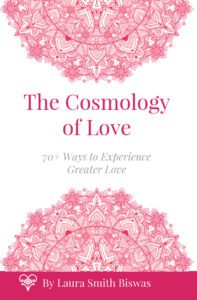
The Cosmology of Love: 70+ Ways to Experience Greater Love
The first step in part is to say like, “What is it that I need? If I need more sleep than my partner, I’ve been with different.” They sleep a lot less than I do. I always felt this pressure like staying up and spending time and doing this. It would shortcut because then I’m exhausted and not present. I’m not a great partner that I need to know. I have to have a bedtime that works for me. We have to navigate a different time to be in bed together or whatever it is. That’s a very simple boundary, something like sleep but it can have a far-reaching effect on how you show up. It could be something else like maybe you’re going through, like, when I was getting divorced. We had married young, so I think we were pretty codependent.
I was trying to learn what does it mean to be interdependent and not codependent because I didn’t have one of those relationships. I was only going to walk away from it. We have three children. The youngest is on the brink of leaving home but is still home. We’re still co-parenting. We have a business that’s still thriving and doing well. We managed to navigate a divorce through that, so that was great. It wasn’t only to walk away and never talk to him again. That wasn’t going to be it. I had to figure this out. What I had to do because the other person doesn’t necessarily agree with you. Like, “Okay, I’m ready to have boundaries.”
They never do. They’re going to test them. It’s uncomfortable because what happens is one person has a pattern and you’re in that pattern. What happens is you decide to make a change. Like maybe it means you move here or whatever and you start not picking up the phone when you know that they’re in a place that’s not a good time to talk, or maybe you don’t respond to that text immediately or you respond some other way. That pattern is irritating usually to the other person because they can’t engage. They’re not in their comfort zone anymore. You’re forcing them off of their balance.
There becomes this give and play on. Are you going to stick with your boundaries? Are you going to keep persisting? Can you do that from a place of centeredness and patience? Not all the time. That’s unrealistic but if you keep returning to it over and over and saying, “What would love do in this situation? What does that mean to be loving to myself?” It means I need to hold this boundary.
Sometimes it’s hard. There are times to put me in tears to say like, “I cannot engage now. It’s not going to work. I want to be there for you but I can’t because I can’t be there for myself.” I would step away and take time. It was hard to break that pattern of always engaging when it wasn’t healthy. As I did, eventually, that interaction stopped happening so much and it took some time. It takes dedication to it but gradually that began to unravel. There came the point where my ex-husband said to me and he said this more than once. I’m sure he would go on record for it.
He said, “Thank you for her being the one to say this wasn’t working and for divorcing me because I wasn’t ready to do the work until you left.” It forced both of us and our children to grow true. Which, for me, that was probably the most painful part was seeing how it affected them. They’ve all also saw the wisdom of the growth our family went through. We were all fortunate we had an objective to have a family that was still a bit integrated. Everybody knows each other’s partners, my boyfriend’s friends with him. My ex-husband’s girlfriend is in everybody’s life to a certain degree that works for all of us. That took a lot of navigation and boundaries to figure out how much space do we need, how much distance, how much communication.
It’s not that it’s perfect but it works. We don’t have a lot of conflict in the family anymore. That’s where I wanted to be. I didn’t want to be having conflict anymore. It wasn’t working back when that decision was made. I feel like we navigated a challenging situation in a loving way but you have to break it down. This is where it helps to have some specific ideas of what does that means to have a loving divorce or a loving new relationship?
I had a very contentious divorce. Boundaries were challenged when someone was determined to control. A little bit different. I got a lot. I mean a lot of pushback but, for me, that was a good thing that I realized that I was growing. He wasn’t. He was still in that spot but probably one of the best things with my boundary setting learning was the day that he and my daughter tried to control me with something. I said, “That’s amazing. You go do it. You have fun.” I let go. My intention was, “I hope they come back someday and realize how wrong that was.”
In some ways, just giving your attention is love. Whether you're speaking to someone, touching them, being there physically, all are forms of attention and presence. Share on XIt’s always that first thing where I got like that. I don’t want to say manipulated to work but it was that letting go was gold was when four weeks later, my daughter came back and said, “That was messed up.” That was my way forward with setting boundaries works and I have to be firm and I have to let go of an outcome because a lot of times if you’re not willing to let go of the outcome when you set those boundaries, it can be even harder.
You can’t do that with the intent that it will work out because I’m setting boundaries. You have no promise. The other person is going to come along that ride. I was very fortunate that it did. Over time, we navigated to a newer place as a family but it can be that the other person refuses, then you keep having to make decisions, “What’s the next most loving thing?” You arrive in a new place and sometimes it’s not where you thought you were going to be but you can rely on that inner wisdom to say, “I made each step of the way the best decision I could.” That’s all you can do. We can’t control their people. That’s certainly not loving.
Not at all, but the good news is I golf with my ex-husband almost every weekend now, it finally evolved but it took a while and it took a lot of anger on his part and on mine. Like, you can’t control me. Tell us about those other ways of loving that are in the book.
Let’s pick one. Touch is an obvious one but what we don’t always realize is we live in a society that’s very digitally expressive of touch. There are pictures everywhere. Anybody can find anything they want on the internet but do we have a culture that allows us to talk about sensuality, sexuality, touch, even everyday touch like a parent to child? I have three children. I saw the differences between them. Even now, my oldest, she’s super cuddly. She’ll come over to visit and be like, “Come sit by me on the couch.” She’s super touchy. My middle one is somebody, at some point where she felt she had avoided. She said, “I’d like people to ask me before they hug me.” She needs the warning that somebody is coming to be able to receive it.
Not everyone’s like that. Maybe we have neurotypical people in our family. Maybe that’s a possibility but everybody is different. It could be that your partner needs things a little bit differently. It’s learning how to have those conversations to feel comfortable saying, “This is awkward but I’m wondering, is this working for you, or this isn’t working for me, even though I know you’re doing a great job but maybe we could go here. Have you ever thought about this? What about that?” Being more curious and exploratory, instead of feeling like there’s a right and wrong way to do it. That way, you open up the box for it to be more of an evolution and a changing dynamic. That probably applies to any way we love but that’s a good example for that one.
The ways of thinking is another one that we don’t think about so much but can we think about others with neutrality? Let’s say your children are taking a totally different path than you expected. You think they’re going off the deep end and their career path but it’s a very genuine interest and that’s all you can garner. We’ve been having this talk in our family because the youngest is figuring out what she wants to do. She’s not completely there yet either but I believe that my opportunity as a mother is to see what is spikes for passionate interest and sport that even if I don’t quite know where it’s going.
Her dad’s still like, “This doesn’t seem very practical at this point.” I’m like, “Let’s give it some room.” I’m not saying one of us is right and wrong and maybe the middle is a good place to be but it’s the opportunity to be more neutral instead of to come down hard on somebody and say, “I know you’re doing the wrong thing.”
As a parent, it’s so easy to think you know the path for your children or even with your partner. “This is how it should be in our relationship,” and yet, we haven’t always done the time to ask more questions and listen more to understand what’s going on inside, what’s driving you before you jump to, “This doesn’t make sense to me. I want you to stop it, or something like that.” Which is a knee-jerk reaction that even if we don’t say it, sometimes we’re thinking it.
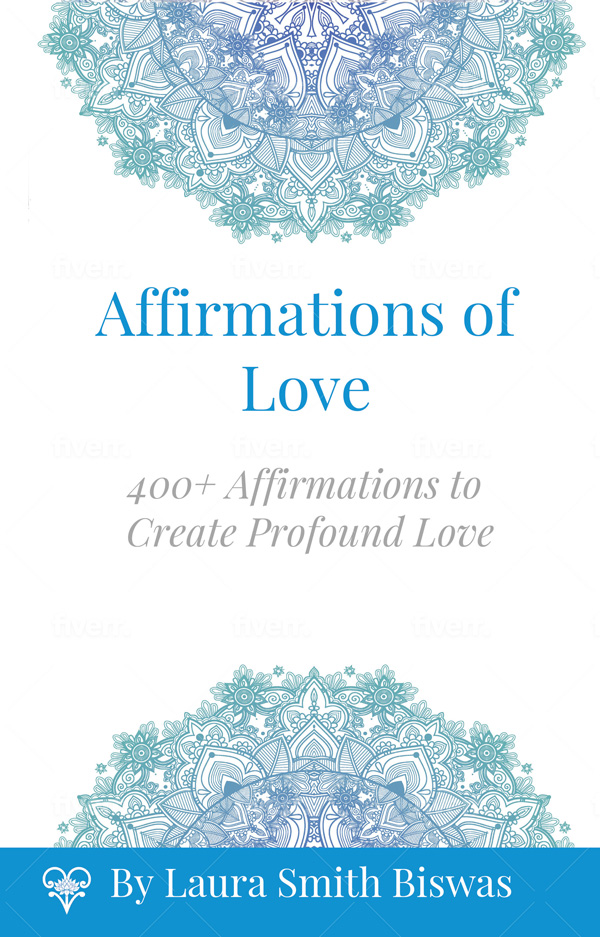
Affirmations of Love: 400+ Affirmations to Create Profound Love
I had parents who were like, “You need a government job like we have.” I was like, “I would kill myself.” “We have holidays.” It’s like, “No, I’m an entrepreneur. I love being poor.” Back when I first started, “I love being poor.”
Don’t worry. It’s no problem. How we think it is the right place to explore. Can we hold neutrality? Can we sit in a setting? You’ve probably been in some of these with a family situation where there’s conflict or anger. Can you be a person who’s holding the vibration of peace and that energy of peace for what’s going on? Even if you’re not involved directly.
That can also be a way of being, so sometimes they’re crossing over a bit. Can you hold compassion inside in a moment like that? Without any words, it’s all a muscle. It’s all in some ways. Let’s call it, a love muscle. We have our go-tos that we’re strong at. Sometimes those are going to save the day for sure. Sometimes we need to exercise a new muscle, so you can think about it that way too.
Where in this does being present fit in? I would say that is probably the biggest thing we face in communication with people. I know I do it. I’ll be at a cocktail party and I’ll be like, “Give birth already. Get the story over.” Seriously, for a lot of people, they’re so busy. They’re not even present to any of these things.
I’ll tell you. The book has a process that helps you figure out what your own needs are so you can share those with the people you love and being present is probably in my top two. I’m not incredibly good at it still, myself and giving it but it’s something I’m working on all the time. You picked out one that is one of the most important for many people because, in some ways, giving your attention is what love is. Whether you’re speaking to someone touching them, being there physically, all of that is a form of attention and presence.
When we physically are there but our mind and our heart are over here, we’re not there. We’re only a warm body. We all feel that and we’ve all been very distracted by the engagement we have with so many interruptions and so many things to engage with. I think it’s, I hate to call it a crisis. Let’s call it the biggest opportunity we have in our time.
You should be writing copy.
I know. Maybe we can work on that but in my worldview, I think it’s one of the biggest opportunities we have is to learn how do you live in a world with this much stimulus and slow down enough to be present? It starts with ourselves. That’s often. It doesn’t mean we have to be perfect at it but if we can’t stop and listen to ourselves, how are we going to be practiced at listening and being fully engaged with another person and setting down our work, other thoughts, worries, phones, TV and books? There’s such a long list below that.
Devices have had this huge benefit, and they have had a huge cost in our world. Share on XEven for parents, they struggle with, “Put down the phone. We’re at the kitchen table.” It’s even that basic that kids come to the phone with their devices or come to the table with their devices, or you look around in the grocery store and everybody’s on a fricking device in line when we used to all talk to each other and make fun of the National Inquirer stories.
It’s interesting because devices have had this huge benefit and they have had a huge cost in our world. I never want to demonize them because we wouldn’t be having this chat without a device. There are so many good things that come from it but what we haven’t figured out societally is, where’s the balance? That’s why you see these new camps popping up. Even for adults where you turn your phone in for a week because, for some of us, I hate to say we were old enough to remember what it’s like before all these hits. I know the difference. Our power went out over the holidays and it was cut for 24 hours. Your phone eventually dies and all your backup chargers eventually die unless you go somewhere else.
At first, I was irritated with everything, then I started to settle into it. Putting the candles on, reading books and there was such a refresh in that I’ve decided I’m going to unhook every month, at least one day for the day. We’ve been having this conversation. I came from a big family. I have a lot of nieces and nephews. Including my children and my nieces and nephews, there are so many people with very serious anxiety challenges. I do think it’s tied to a degree into the amount of stimulus we have while social media has a lot of services it provides. In their age group, it has provided a lot of harm and pain and criticism and challenge as well.
We have a journey ahead as a culture to figure out how do we pull the best from that? How do we do no harm or find the place where we feel present in ourselves? We know what we need. We can show up for people present, or when we make a mistake, we apologize and try again. We’re never going to get perfect at this. We’re going to get distracted. It happened to me at dinner with my boyfriend. He was like, “I feel like I’m competing with that menu because you keep looking.” I was rethinking what I was getting. I was like, “I’m sorry, I’m tired. I’m not focused.” We talked about it but it’s not that we’re going to move into Eutopia but there’s probably a middle ground we can look for.
I worry about social media because when I disconnected from Facebook in 2016, I spent a week in what I would probably call detox. I was seriously anxious because I was so used to being on it so much. After that, it was like, “This is awesome.” I don’t miss social media one single bit. I think I’ve become a happier person because often I wonder how many other people. Especially something like Twitter, where all people do is argue. It gets toxic.
That’s stirring up a lot of stress hormones, anxiety and upset all the time. It’s not to say we’re going to live without any of that but where are we spending our focus and are you spending your time living and engaging? For me, I have this passion for like, “How do I live a more loving life? How do I learn to be a more loving being as I evolve every year?” You got to ask yourself, “Is that helping or hurting?” You can use it on either side but you want to ask those questions and figure out where my energy is being directed or I’m letting my energy be pulled away without being conscious about where it’s going.
That is one of the things when I talk to some people. One person, in particular, will start telling me what’s going on Facebook. It’s like, “Do you live on Facebook? That’s not real, or do you live in the real world where it’s real hair?”
Do you want to have real experiences in the body or do you want to have all digital? There’s a digital experience that’s great. One of my daughters is a gamer. She’s got one of those headsets and you can go to Antarctica. She showed it to me and we had a lot of fun. Like going in and looking, that was pretty cool but I don’t want to do that 24/7. I would like to go to some places in person.
My thing with the gamer is, “Dinner’s ready.” That thing on his head. It’s always there. Where can we find your book? Where can we find you?

Express Love: Understanding your own needs is a big part of understanding what boundaries need to be in place for you.
For the book, you could go to WaysOfLovingBook.com. Get to where you can purchase it on Amazon. We both have paperback and eBook available. You can also find me on a website, TheLoveMandala.com. I also have a quiz. One of the things that’s great about having a quiz and, Juliet, I’m giving you all credit for helping me create one. It’s helping people in my world. For example, we’re all different. Sometimes we take it personally when somebody maybe rubs us the wrong way or doesn’t receive our love. When you take the quiz, you go, “There’s a lot of skill sets in here. That’s a lot of ways.”
You begin to realize the differentiation and how we’re all different. Let’s not take it personally. Let’s make the discovery. I have a quiz at WaysOfLovingQuiz.com that you can take and discover a little bit more about yourself and get a little answer in your inbox about where you’re strong and where you might have opportunities to grow.
Go take her quiz. She has some upcoming courses as well, which is beneficial workshop and courses around ways of loving.
Thank you, Juliet.
Thank you.
It’s been super fun to talk with you about all this.
Important Links
- Superbrand Publishing – YouTube
- Rumble
- BreakthroughAuthorMagazine.com
- The Cosmology of Love: 70+ Ways to Experience Greater Love
- WaysOfLovingBook.com
- TheLoveMandala.com
- WaysOfLovingQuiz.com
About Laura Smith Biswas
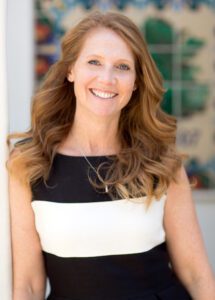 Laura Smith Biswas, author of The Cosmology of Love: 70+ Ways to Experience Greater Love is focused on teaching tangible ways to love ourselves and experience more love in our close relationships. She has been featured on ABC, NBC, Fox, AP, and Marketwatch. Her book illuminates how to identify what your top needs are in receiving love, specific ways to help you stoke the fire of intimate relationships and improve your skillset in communicating love in all relationships. Her work reminds people that love isn’t an accidental thing we find, but something that thrives under conditions that we have the power to cultivate.
Laura Smith Biswas, author of The Cosmology of Love: 70+ Ways to Experience Greater Love is focused on teaching tangible ways to love ourselves and experience more love in our close relationships. She has been featured on ABC, NBC, Fox, AP, and Marketwatch. Her book illuminates how to identify what your top needs are in receiving love, specific ways to help you stoke the fire of intimate relationships and improve your skillset in communicating love in all relationships. Her work reminds people that love isn’t an accidental thing we find, but something that thrives under conditions that we have the power to cultivate.
Laura is an entrepreneur and mother of 3 daughters and lives in Westlake Village, CA with her partner of five years. She holds a MS in Spiritual Psychology from the University of Santa Monica and a MBA from Yale University.

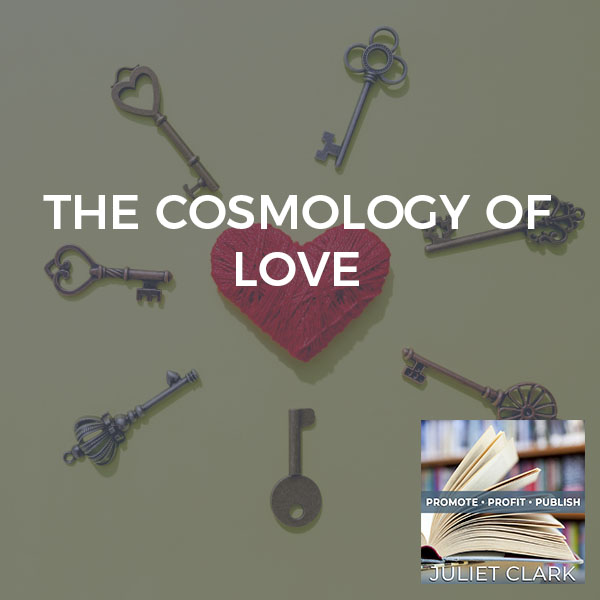







Leave A Comment